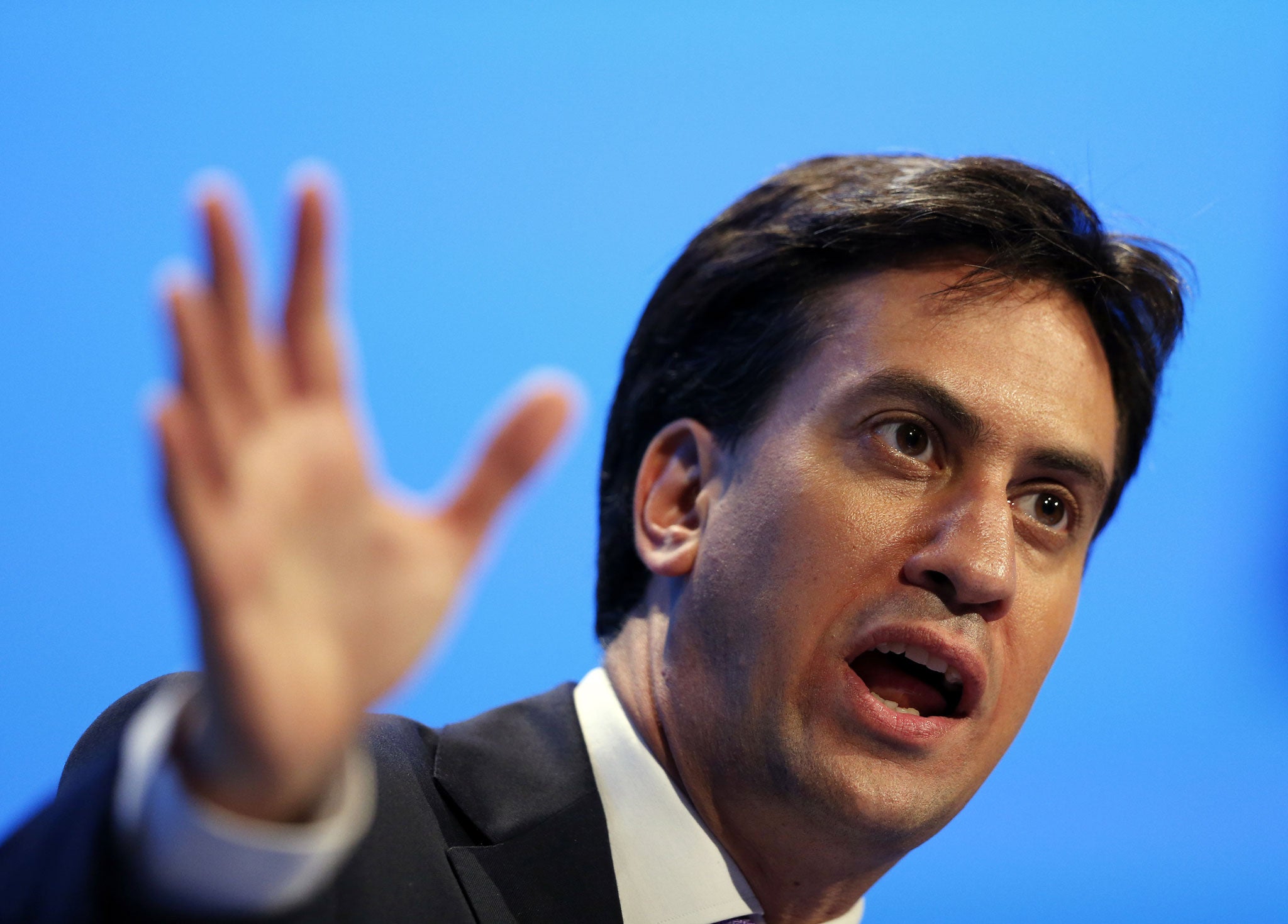Inside Westminster: A good speech, but what about the economy, Ed?
He must hope the policy proposals do not wither under pressure


Your support helps us to tell the story
From reproductive rights to climate change to Big Tech, The Independent is on the ground when the story is developing. Whether it's investigating the financials of Elon Musk's pro-Trump PAC or producing our latest documentary, 'The A Word', which shines a light on the American women fighting for reproductive rights, we know how important it is to parse out the facts from the messaging.
At such a critical moment in US history, we need reporters on the ground. Your donation allows us to keep sending journalists to speak to both sides of the story.
The Independent is trusted by Americans across the entire political spectrum. And unlike many other quality news outlets, we choose not to lock Americans out of our reporting and analysis with paywalls. We believe quality journalism should be available to everyone, paid for by those who can afford it.
Your support makes all the difference.During Labour’s “summer of drift”, when internal grumbling about Ed Miliband’s lack of policies filled the news vacuum, his allies insisted the wait would be worth it when we got to the Labour conference.
For the first couple of days in Brighton, even loyalists wondered whether they had been sold a pup. The noises off from Damian McBride, Gordon Brown’s former spin doctor, were a frustrating and damaging distraction. Some new policies did not appear to have been fully road-tested. The mood was edgy. The success or failure of the conference again hinged on Mr Miliband’s big speech on Tuesday.
Wisely, he had saved up a signature policy. The proposed 20-month freeze on gas and electricity prices had been properly pre-tested. He knew the energy companies would attack it, and anticipated the revival of the “Red Ed” label by the Conservatives and right-wing newspapers. The Labour leader chose his ground carefully: if his enemies want to oppose a price freeze amid rising public anger about energy bills, that is fine by him.
Team Miliband is convinced the price freeze will be a winner. It will certainly give Labour a much-needed doorstep message, and will probably top its pledge card in 2015. Yet one policy does not make a manifesto and Labour won’t win a “cost of living” election unless it improves its trust rating on the economy. The pressure to do so is even greater now that the Conservatives can point to a return to growth. Yet Mr Miliband devoted just 84 of his 7,955-word speech to the need to tackle the deficit. He wanted to show that Labour could use the power of government to make a difference in hard times without spending more money. But surely the need for economic credibility needed to be addressed more fully. It can’t be wished away.
However popular the energy price freeze, Blairites worry that such market intervention is another symptom of Mr Miliband’s desire to be “not Blair”. But he didn’t quite escape New Labour, and not only because Mr McBride stalked the conference. Mr Miliband’s “Britain can do better than this” mantra echoed Mr Blair’s 1997 election pitch of “Britain deserves better”.
Team Miliband insists that its One Nation Labour is a rejection of both Old and New Labour as the party’s values are reapplied to new times. It says Mr Miliband’s version does not represent sectional interests like Old Labour. Nor is it relaxed about widening inequality, or timid in the face of vested interests (like the energy companies) as New Labour was.
We certainly know more about Labour’s policies than we did before the conference. But there are still unanswered questions. How many of the 200,000 homes a year Labour promises by 2020 would be publicly funded? It cannot answer because of a crucial unresolved debate. While sticking to the Coalition’s day-to-day budget ceiling for 2015-2016, Mr Miliband wants to pledge to outgun the Conservatives on capital spending, with a massive boost to housebuilding by housing associations and councils. That is almost certainly where Labour will end up. But Ed Balls, the shadow Chancellor, is not yet convinced; he said this week that a decision would be taken nearer the election.
A year ago, Mr Miliband made a very good conference speech, launching One Nation Labour, but it fizzled out because it was hard to sell such a vague concept. After another very good speech, and this time a hard policy to sell, he cannot afford to make the same mistake and virtually disappear off the radar until his next annual appointment with the voters.
Join our commenting forum
Join thought-provoking conversations, follow other Independent readers and see their replies
Comments